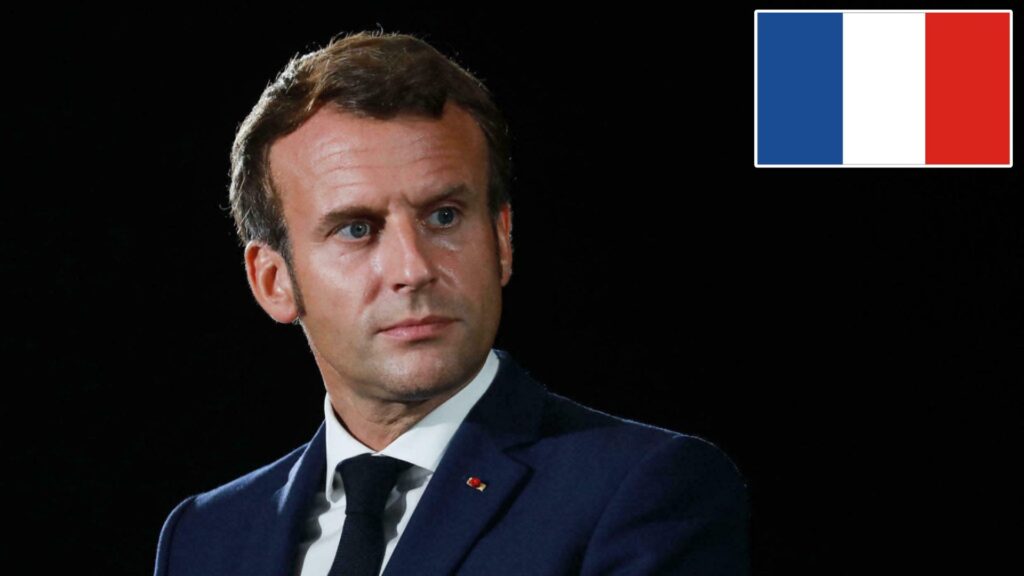In a major policy shift aimed at combating radicalism within France, President Emmanuel Macron has announced a controversial ban on the entry of foreign imams into the country. This significant step, coupled with plans to reassign or repatriate existing foreign imams, has ignited heated debate, raising concerns about freedom of religion and potential Islamophobia.
The new law, scheduled to come into effect in April 2024, seeks to exert greater control over religious leadership in France. It applies to all non-EU imams, and those already residing in France will face two options: either accept reassignment to non-preaching roles within local mosques or return to their home countries. The move stems from Macron’s belief that foreign imams can potentially act as conduits for “Islamic separatism,” promoting ideologies incompatible with French secular values and social cohesion.
This stance has drawn immediate criticism from various quarters. Muslim community leaders argue that the new law unfairly targets a specific religious group and risks alienating French Muslims. Civil rights advocates warn of potential violations of religious freedom and discrimination, urging the government to prioritize dialogue and integration over restrictive measures.
Opponents further highlight the logistical complexities of the policy. France currently estimates around 300 foreign imams in the country, and their reassignment or repatriation raises logistical and legal challenges. Concerns about potential job losses and social unrest within Muslim communities have also been voiced.
Macron, however, remains firm in his resolve, emphasizing the need to protect French society from the “threat” of radical ideology. He maintains that the new law aims to empower French-trained imams who “understand the values of the Republic” and can effectively counter extremist narratives within mosques.
BIG NEWS ⚡⚡ France bans entry of Imams from foreign countries to combat Radicalism.
Foreign imams already in the country will either be sent back or take on new, lower-level positions at local mosques. Emanuel Macron contends “foreign Imams may promote Islamic separatism, or… pic.twitter.com/ohBVU9xoxd — Times Algebra (@TimesAlgebraIND) January 15, 2024
Beyond the Rhetoric: Implications and Unforeseen Consequences
The impact of this radical policy shift remains to be seen. While proponents applaud it as a necessary step towards safeguarding French national security, critics warn of potential unintended consequences:
- Deeper Divisions: The new law could exacerbate existing tensions between the French Muslim community and the government, potentially fueling feelings of isolation and alienation.
- Counterproductive Effects: Restrictive measures might inadvertently push vulnerable individuals towards radical groups, creating a negative feedback loop.
- Impact on Religious Freedom: Balancing national security concerns with individual rights will be crucial to ensure the law doesn’t violate fundamental freedoms of religion and expression.
Navigating a Controversial Path: Finding the Right Balance
Macron’s ambitious anti-radicalization strategy has undoubtedly ignited a national conversation on the delicate balance between security, integration, and religious freedom. The success of this bold move will hinge on its implementation, with transparency, community engagement, and respect for fundamental rights playing crucial roles.
For France, the challenge lies in navigating this sensitive terrain. Striking the right balance between protecting national security and upholding respect for diverse religious communities will be essential in fostering a sense of inclusion and belonging for all within French society.
Beyond the 1000 words, consider exploring these additional angles:
- The historical context of Islamic radicalism in France, including the Charlie Hebdo attacks and other major events.
- Comparative perspectives on how other European countries are tackling similar challenges.
- Potential impact on France’s relationship with Muslim-majority countries and the broader international community.
By providing a nuanced and comprehensive analysis of this complex issue, you can help promote informed discussions and encourage solutions that prioritize both security and social cohesion in France.
read more – Ayodhya to have the World’s first 7-star Vegetarian hotel

